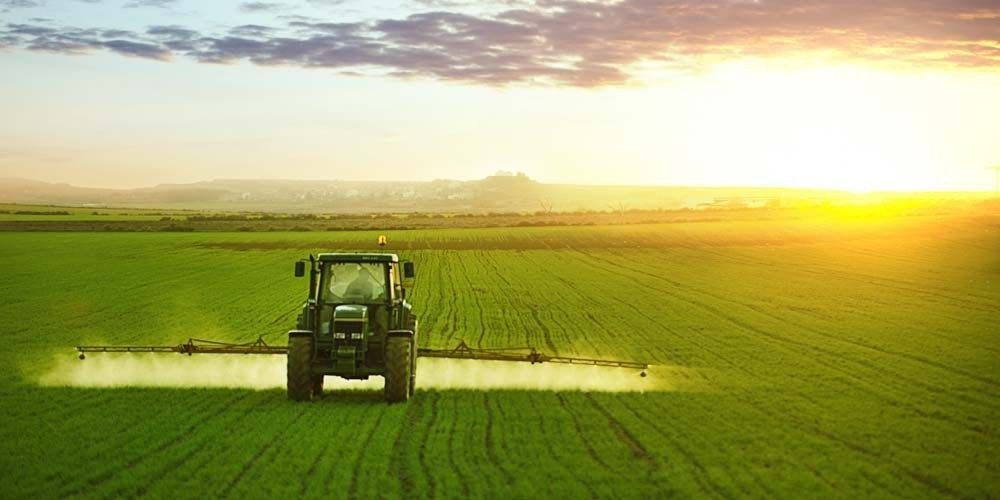Technological Self-Reliance: Indian dependency on Pesticides
Bharatwa Editor
. 2 min read

Pesticides are toxic substances which are manufactured for the sole purpose to annihilate life which does not favor the unhindered growth and well-being of fauna. They are basically used to destroy weeds and pests which destroy the crops, in order to facilitate a prosperous harvest. However, these pesticides are known to have numerous side effects.
Apart from harming the weeds, insects, fungi and bacteria, and other things which harm crops, they also harm the same crop and those who look after it.
Also Read:
1. Natural & Homemade Insecticides to Save your Farm from Pests
2. Reduce Use of Pesticides without Compromising Crop Yield
In the long run, that is, after continuous use, they can not only harm the crop production, they can also harm the humans and other living beings that come in contact with the pesticides in any way. Farm workers who get directly exposed to such harmful material are liable to suffer from asthma, diabetes, Alzheimer’s, Parkinson’s, autism, acquire learning disabilities or birth defects or become dysfunctional in some way or the other.
Self-reliance is necessary for India because it can reduce the dependence on other countries but seeing their impact we must consider their benefits as well as hazards. India is the largest producer of pesticides in Asia and ranks twelfth in the world for the use of pesticides. Agricultural development continues to remain the most important objective of Indian planning and policy however too much use of pesticides have also led to many disasters. It is well known and acknowledged that pesticides are harmful for the environment and human health, we often do not know how to evaluate and control the extent of the damage.
Pesticide Use and Application: An Indian Scenario
In India, the production of pesticides had commenced in the year 1952. A plant had been established for the same purpose (the production of BHC) near Kolkata (then Calcutta). Currently, India happens to be the second-largest manufacturer of pesticides in Asia, after China. Around the 1960s insecticides like Organochlorine were restricted and banned in some of the technologically advanced countries.
The next few decades saw the arrival of several synthetic pesticides like the organophosphate (OP) in the 1960s. the very next decade brought forth carbamates while the 1980s brought forth along with it, insecticides like pyrethroids. It was at the same time that the use of herbicides and fungicides gained popularity.
Ideally, pesticides should have been lethal for the targeted pests and not for man. But eventually, the ill-effects of the use of pesticides surfaced. It affected the farmers and those who ingested these pesticides. In nominal quantities, the side effects were much slower to crop up, and ingestion in large quantities proved to be dangerous. In India, the ratio of pesticide usage is vastly different from the rest of the world. Approximately around 76% of the pesticide used in the fields in India happens to be the insecticide. While on a much larger scale, 44% of the total amount of pesticides used in the world happens to be insecticides.
Pesticides the likes of fungicides and herbicides are comparatively used in much lesser quantity than insecticides in India. Here, in India, pesticides are mainly bought and used for the production of cotton crops. Statistics places that around 45% of pesticide gets used in cotton plantations. Paddy and wheat are the other two crops which employ the high amount of pesticide in their production.
Also Read:
1. The procedure of Soil Testing & Sampling for Laboratory Analysis
2. Shift to Organic Farming: Economic and Social Sustainability is Possible through “Jaivik Kheti”
Admittedly, the use of pesticides does have its share of benefits. It enhances the productivity of the crops and at the same time protects them from antisocial elements of nature. They are also known to augment the quality of food. But it also has its share of hazards. It could contaminate the fertility of the soil, compromising the quality of the water and affect the quality of the food.
More Stories from
15 Pakistani Movies That Will Make you Forget Bollywood
We have compiled the ultimate list of top 15 Pakistani movies that you shouldn't miss, these left a greater social impact.
Film Mafia, Fueling the Fire and Enraging Masses
Film Mafia of Bollywood is Fictionalizing history, Rubbishing Religion, Promoting Anti-National Spirit, Mocking Hindu Gods, Award Wapsi and Intolerance drive
How did India respond to Donald Trump's 25% tariff penalty on India?
Trade tensions between the United States and India have sharply increased as a result of this recent development. Know how India responds to Donald Trump's 25% tariff penalty on India.
Geoffrey Hinton's AI Warning: The Most Dangerous Invention Ever
AI is both beneficial and dangerous, depending on how it is developed, deployed, and regulated.
Unbelievable Facts about World History that will surprise you
Human history and the natural world are filled with mysteries, marvels, and strange truths that challenge our understanding. In this article, we will explore some unbelievable facts about world history.





